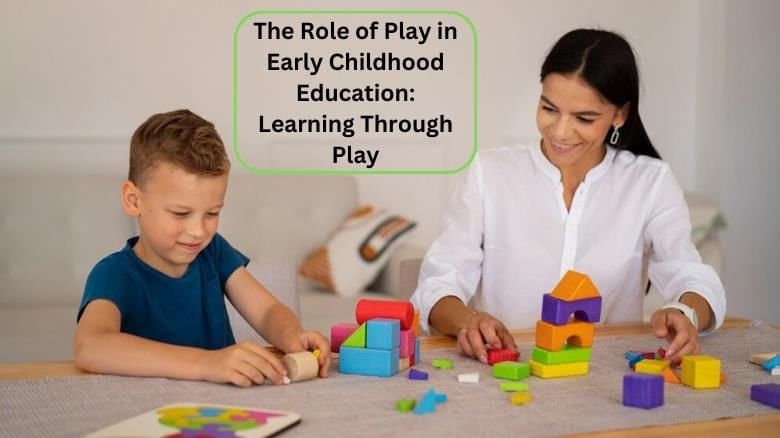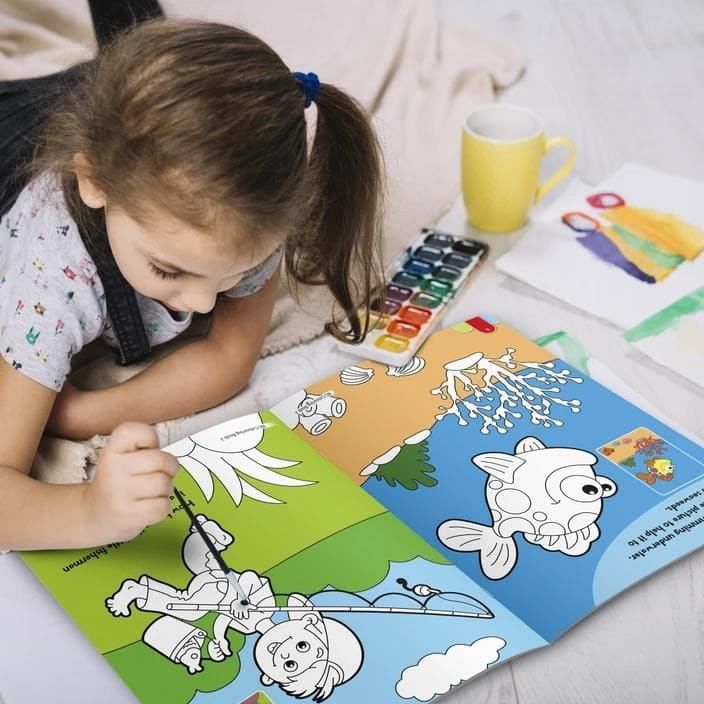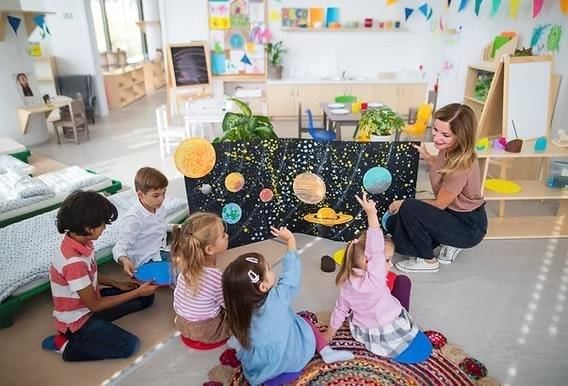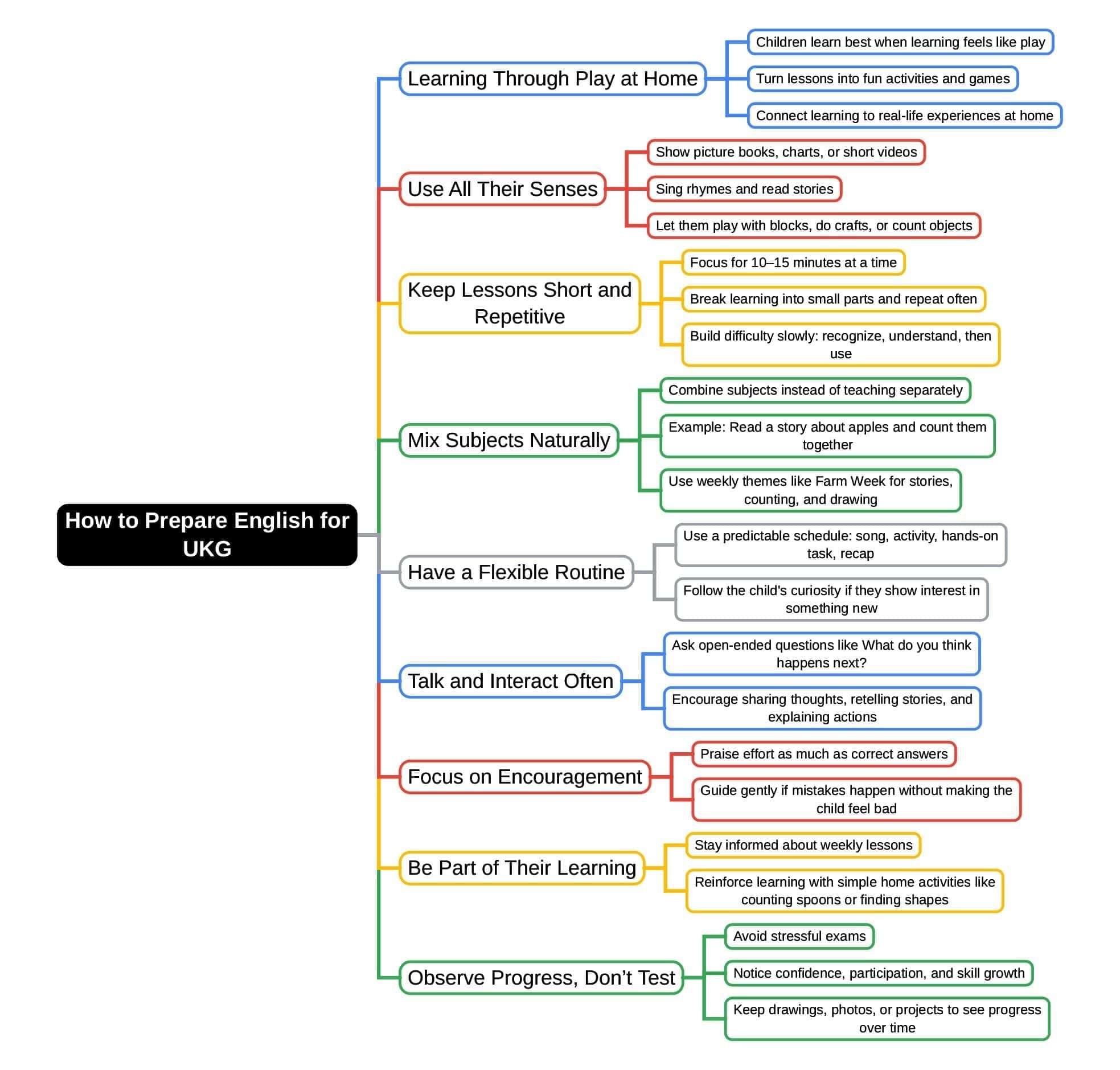How to build a strong foundation for your child in UKG | English for UKG PDF Download
1. Learning Through Play at Home
Children in UKG learn best when learning feels like play. Turn lessons into fun activities and games. Follow your child’s curiosity and connect learning to real-life experiences at home.

2. Use All Their Senses
Kids this age understand better when they can see, hear, touch, and move.
Show them picture books, charts, or short videos.
Sing rhymes and read stories.
Let them play with building blocks, do crafts, or count objects around the house.
3. Keep Lessons Short and Repetitive
Your child can focus for about 10–15 minutes at a time.
Break learning into small parts, repeat often, and slowly build difficulty — first recognizing, then understanding, then using concepts on their own.
4. Mix Subjects Naturally
Instead of teaching subjects separately, combine them.
For example, read a story about apples and count them together. Pick weekly themes like “Farm Week” and explore stories, counting, and drawing around that theme.
5. Have a Flexible Routine
Kids feel secure with a predictable schedule (song → activity → hands-on task → recap). But if they’re curious about something new, go with their interest.
6. Talk and Interact Often
Ask open-ended questions: “What do you think happens next?” Encourage your child to share their thoughts, retell stories, and explain what they’re doing.
7. Focus on Encouragement
Celebrate effort as much as correct answers: “I love how carefully you coloured this!” If they make mistakes, gently guide them without making them feel bad.

8. Be Part of Their Learning
Stay informed about what your child is learning each week. Reinforce it with simple activities at home: count spoons while setting the table, find shapes in the park, or talk about colours while dressing up.
9. Observe Progress, Don’t Test
Skip stressful exams. Notice changes in their confidence, participation, and skills. Keep a collection of their drawings, photos of activities, or small projects to see how much they’ve grown.


|
43 videos|117 docs|5 tests
|
FAQs on How to build a strong foundation for your child in UKG - English for UKG
| 1. What is a child-centered, play-first philosophy in early childhood education? |  |
| 2. How does multi-sensory learning benefit young children? |  |
| 3. Why are short, repetitive, and layered sessions effective for young learners? |  |
| 4. What is integrated learning, and why is it important in early childhood education? |  |
| 5. How can parental or guardian involvement enhance a child's learning experience? |  |





















